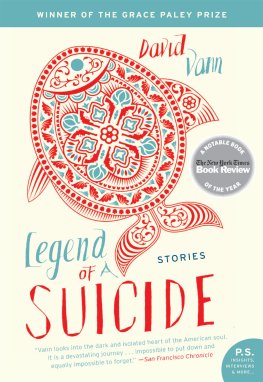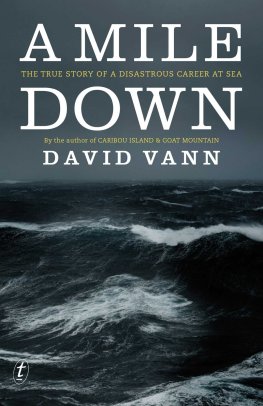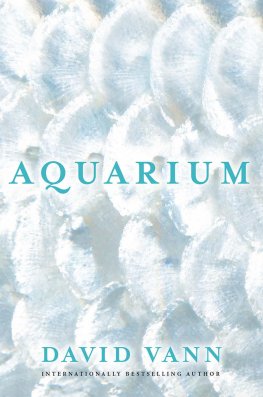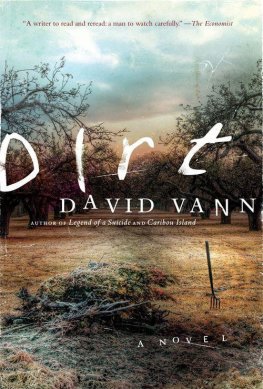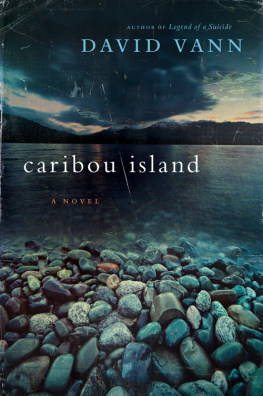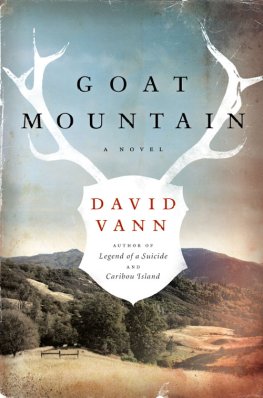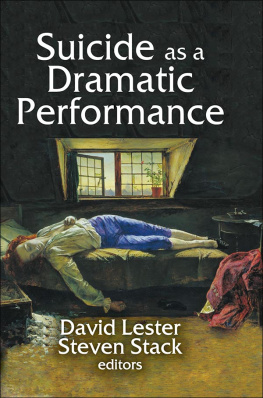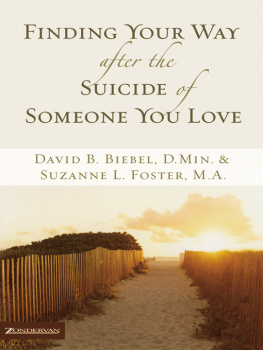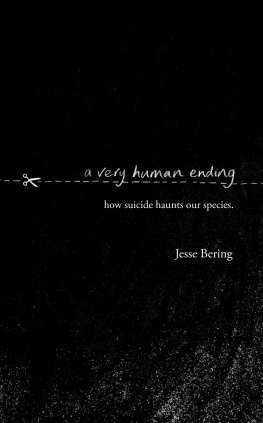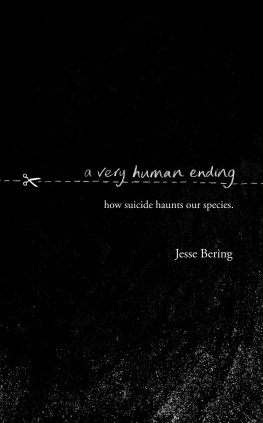David Vann - Legend of a Suicide
Here you can read online David Vann - Legend of a Suicide full text of the book (entire story) in english for free. Download pdf and epub, get meaning, cover and reviews about this ebook. year: 2009, publisher: Penguin Books Ltd, genre: Prose. Description of the work, (preface) as well as reviews are available. Best literature library LitArk.com created for fans of good reading and offers a wide selection of genres:
Romance novel
Science fiction
Adventure
Detective
Science
History
Home and family
Prose
Art
Politics
Computer
Non-fiction
Religion
Business
Children
Humor
Choose a favorite category and find really read worthwhile books. Enjoy immersion in the world of imagination, feel the emotions of the characters or learn something new for yourself, make an fascinating discovery.
- Book:Legend of a Suicide
- Author:
- Publisher:Penguin Books Ltd
- Genre:
- Year:2009
- Rating:5 / 5
- Favourites:Add to favourites
- Your mark:
- 100
- 1
- 2
- 3
- 4
- 5
Legend of a Suicide: summary, description and annotation
We offer to read an annotation, description, summary or preface (depends on what the author of the book "Legend of a Suicide" wrote himself). If you haven't found the necessary information about the book — write in the comments, we will try to find it.
Legend of a Suicide — read online for free the complete book (whole text) full work
Below is the text of the book, divided by pages. System saving the place of the last page read, allows you to conveniently read the book "Legend of a Suicide" online for free, without having to search again every time where you left off. Put a bookmark, and you can go to the page where you finished reading at any time.
Font size:
Interval:
Bookmark:
David Vann
Legend of a Suicide
For my father,
JAMES EDWIN VANN,
19401980
ICHTHYOLOGY
MY MOTHER GAVE birth on Adak Island, a small hunk of rock and snow far out on the Aleutian chain, at the edge of the Bering Sea. My father was serving two years as a dentist in the Navy; he had wanted Alaska because he liked hunting and fishing, but he obviously had not known about Adak at the time of his request. Had my mother known, she would have scratched out the request herself. Given enough information, my mother has never made the wrong choice.
So it was that she refused to have her sweltering, jaundiced baby yanked out of Adaks underground naval hospital and thrown into the jet that sat waiting on the runway for more than six hours. Because my temperature was 105 degrees and still climbing, the doctors and my father recommended I be flown to the mainland, to a real hospital (no one on Adak survived even a mild heart attack while we were there no one), but my mother refused. She was certain, with what my father always described as an animal, instinctive fear, that the moment I was borne aloft, I would perish. She placed me in an ordinary white bathtub filled with cold water, and there I survived. Flourished, even. My orange, blotchy skin gradually calmed to a healthy baby pink, my limbs unlocked, and I flailed my legs in the waters until she lifted me out and we both slept.
When my father had finished his sentence with the Navy, we moved to Ketchikan, an island in southeastern Alaska, where he bought a dental practice and, three years later, a fishing boat. The boat was a new twenty-three-foot Uniflite fiberglass cabin cruiser. Still wearing his dental smock beneath his jacket, he launched the boat late on a Friday afternoon as we cheered from shore. He slipped it into its stall in the docks, and the next morning he stood on the edge of those docks looking down thirty feet through clear, icy Alaskan water to where the Snow Goose sat like a white mirage on the rounded gray stones. My father had named it the Snow Goose because he had been filled with dreams of its white hull flying over the waves, but he had forgotten to put in the drain plugs the afternoon of the launching. Unlike my mother, he had neither eyes nor ears for matters below the surface.
That summer, as we flew back over the waves from a day of fishing (my father had had the Snow Goose raised and cleaned, proof that persistence sometimes can make up for a lack of vision), I would be on the open but high-sided back deck with the days catch of halibut, flopping into the air with them each time my father sailed over one wave and smashed into the next. The halibut themselves lay flat, like gray-green dogs on the white deck of the boat, their large brown eyes looking up at me hopefully until I whacked them with a hammer. My job was to keep them from flopping out of the boat. They had terrific strength in those wide, flat bodies, and with a good splat of their tails they could send themselves two or three feet into the air, their white undersides flashing. Between us a kind of understanding developed: if they didnt flop, I didnt smash their heads with the hammer. But sometimes, when the ride was especially wild and we were all thrown again and again into the air and their blood and slime were all over me, I gave out a few extra whacks, an inclination of which I am ashamed. And the other halibut, with their round brown eyes and long, judicious mouths, did see.
When we docked after those trips, my mother would check everything over, drain plugs included, while my father stood by. I played on my knees on the weathered boards of the dock, and once saw a terrifying creature crawl from a rusty tin can that had been knocked on its side. Repulsed by those barbarous legs, I howled and went over backward into the water. I was fished out soon enough, and thrown in a hot shower, but I didnt forget what I had seen. No one had told me about lizards I honestly never had dreamed of reptiles but on first sight I knew they were a step in the wrong direction.
Shortly after this, when I was nearing five years old, my father began to believe that he, too, had made steps in the wrong direction, and he set out in search of the kinds of experiences he felt he had been denied. My mother was only the second woman he had ever dated, but to this list he now added the dental hygienist who worked for him. The nights at our house were soon filled with a general keening of previously unimaginable variation and endurance.
I abandoned ship one night when my father was crying alone in the living room and my mother was breaking things in their bedroom. She didnt utter any human sounds, but I could chart her progress around their room by imagining the sources of wood snapping, glass shattering, and plaster crumbling. I slipped out into the soft, watery world of Alaskan rain-forest night, soundless except for the rain, and wandered in my pajamas down the other side of the street, peering in dark, low living room windows and listening at doors, until at one door I heard a humming sound that was unfamiliar to me.
I went around to the side of the house, opened the screen door, and pressed my ear to cold wood. The sound seemed lower now, almost a moan, barely audible.
The door was locked, but I lifted up the rubber corner of the welcome mat and, just as at our house, the key was there. So I went in.
I discovered that the buzzing sound was the air-pump filter on a fish tank. Something about wandering alone through someone elses house was awful, and I moved solemnly across the linoleum to take a seat high on a kitchen stool. I watched the orange-and-black-striped fish suck at pebbles and spit them out. The tank contained larger rocks, also: lava rocks with dark caves and crannies out of which peered many tiny round fish eyes, shiny as foil. Some had bright red-and-blue bodies, others had bright orange bodies.
I thought perhaps the fish were hungry. I went to the refrigerator and saw sweet pickles, opened the jar, and brought it back for the fish to see. I found slots on top of the tank, toward the back, and dropped the pickles in, one or two at first, then the whole jar, slice by slice, and finally poured the juice in, too, so that the tank water swelled up and ran in beads over the side.
I stared at the pickle slices floating brightly with the fish, some of them sinking and twirling. They bounced slowly over the bright pink and blue rocks below. The orange-striped fish had all flashed about the tank as I had been pouring, but they, too, now moved slowly. They leaned a little to one side as they swam, and several rested on the rocks. Others stretched their long, see-through cartilage mouths at the surface every few moments and sucked for air. Their side fins rippled as delicately as fine lace.
When the pickle slices had settled more, they rocked like sleeping fish just above the pink and blue gravel, and the real fish rocked silently beside them, as if in gentle groves of eelgrass and sunken lily pads. The image was beautiful, and in that moment of beauty I strained forward.
I pressed my hands and face close to the glass and gazed into the mute black core of one of those silvery eyes. I felt as if I, too, were floating, gently rocking, oddly out of place, and in that flicker of a moment I caught myself feeling the rocking and, perceiving myself perceiving, realized that I was I. This distracted me; then I forgot what had distracted me, lost interest in the fish, and, after slapping my feet across the linoleum of the kitchen floor, passed again into the soft, dark rain.
Three years later, after my mother and I had moved down to California, I was given a fish tank of my own and decided to become an ichthyologist. My parents had separated, of course, startled nearly as much by what I had done as by what they themselves had been doing all along. Any connection between my vandalism and their nighttime exchanges was completely mysterious to them.
Font size:
Interval:
Bookmark:
Similar books «Legend of a Suicide»
Look at similar books to Legend of a Suicide. We have selected literature similar in name and meaning in the hope of providing readers with more options to find new, interesting, not yet read works.
Discussion, reviews of the book Legend of a Suicide and just readers' own opinions. Leave your comments, write what you think about the work, its meaning or the main characters. Specify what exactly you liked and what you didn't like, and why you think so.

